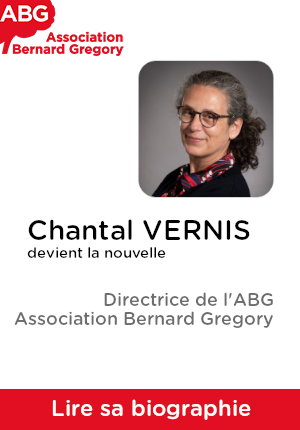ÉTUDE SPECTROSCOPIQUE IN SILICO DE MOLÉCULES ORGANIQUES D'INTÉRÊT ASTROCHIMIQUE // IN SILICO SPECTROSCOPIC STUDIES OF ORGANIC MOLECULES OF ASTROCHEMICAL INTEREST
|
ABG-130206
ADUM-64173 |
Sujet de Thèse | |
| 29/03/2025 | Contrat doctoral |
Université Côte d'Azur
NICE - France
ÉTUDE SPECTROSCOPIQUE IN SILICO DE MOLÉCULES ORGANIQUES D'INTÉRÊT ASTROCHIMIQUE // IN SILICO SPECTROSCOPIC STUDIES OF ORGANIC MOLECULES OF ASTROCHEMICAL INTEREST
- Mathématiques
méthodes numériques, astrochimie, théorie des groupes, chimie quantique
numerical methods, astrochemistry, group theory, quantum chemistry
numerical methods, astrochemistry, group theory, quantum chemistry
Description du sujet
Notre connaissance de la matière carbonée, présente dans de nombreuses sources astrophysiques, est sur le point d'être révolutionnée par de nouveaux moyens d'observation tels que MATISSE opérant à L'European Southern Observatory ou le James Webb Space Telescope. Toutefois, pour tirer profit de la qualité sans précédent de ces observations, nos connaissances spectroscopiques vont elles aussi devoir progresser.
Une meilleure compréhension des signatures spectroscopiques des différentes formes du carbone potentiellement présentes dans l'espace, et des différents facteurs influençant leur modifications en fonction de l'environnement, passera par des calculs théoriques tenant compte de l'anharmonicité des modes de vibration de ces systèmes, allant au-delà des méthodes perturbatives ayant été appliquées jusqu'à présent.
La méthode EFCI (Effective Field Configuration Interaction), développée au laboratoire, est une méthode plus précise permettant de réaliser de tels calculs sur des systèmes modèles. Le but de la thèse est de l'utiliser après avoir amélioré certains aspects numériques afin de faire parler les nouveaux spectres astrophysiques.
------------------------------------------------------------------------------------------------------------------------------------------------------------------------
------------------------------------------------------------------------------------------------------------------------------------------------------------------------
A revolution of our knowledge of carbonaceous matter, almost ubiquous in space, is anticipated due to new observation instruments such as MATISSE operating at the European Southern Observatory or the James Webb Space Telescope. However, parallel progresses in theoretical and experimental spectroscopy will be necessary.
A better understanding of spectroscopic signatures of the different forms of carbon potentially present in space, and of their modifications under various environmental factors, will require theoretical calculations taking into account vibrational mode anharmonicity more accurately than the perturbative ones that have been performed so far on such systems.
The EFCI (Effective Field Configuration Interaction) method, developed in our laboratory, is a method able to perform such more accurate theoretical calculations on model systems. The aim of the thesis will be to use it, after improving several numerical aspects, to exploit as much as possible the information contained in new astrophysical spectra.
------------------------------------------------------------------------------------------------------------------------------------------------------------------------
------------------------------------------------------------------------------------------------------------------------------------------------------------------------
Début de la thèse : 01/10/2025
Une meilleure compréhension des signatures spectroscopiques des différentes formes du carbone potentiellement présentes dans l'espace, et des différents facteurs influençant leur modifications en fonction de l'environnement, passera par des calculs théoriques tenant compte de l'anharmonicité des modes de vibration de ces systèmes, allant au-delà des méthodes perturbatives ayant été appliquées jusqu'à présent.
La méthode EFCI (Effective Field Configuration Interaction), développée au laboratoire, est une méthode plus précise permettant de réaliser de tels calculs sur des systèmes modèles. Le but de la thèse est de l'utiliser après avoir amélioré certains aspects numériques afin de faire parler les nouveaux spectres astrophysiques.
------------------------------------------------------------------------------------------------------------------------------------------------------------------------
------------------------------------------------------------------------------------------------------------------------------------------------------------------------
A revolution of our knowledge of carbonaceous matter, almost ubiquous in space, is anticipated due to new observation instruments such as MATISSE operating at the European Southern Observatory or the James Webb Space Telescope. However, parallel progresses in theoretical and experimental spectroscopy will be necessary.
A better understanding of spectroscopic signatures of the different forms of carbon potentially present in space, and of their modifications under various environmental factors, will require theoretical calculations taking into account vibrational mode anharmonicity more accurately than the perturbative ones that have been performed so far on such systems.
The EFCI (Effective Field Configuration Interaction) method, developed in our laboratory, is a method able to perform such more accurate theoretical calculations on model systems. The aim of the thesis will be to use it, after improving several numerical aspects, to exploit as much as possible the information contained in new astrophysical spectra.
------------------------------------------------------------------------------------------------------------------------------------------------------------------------
------------------------------------------------------------------------------------------------------------------------------------------------------------------------
Début de la thèse : 01/10/2025
Nature du financement
Contrat doctoral
Précisions sur le financement
Concours pour un contrat doctoral
Présentation établissement et labo d'accueil
Université Côte d'Azur
Etablissement délivrant le doctorat
Université Côte d'Azur
Ecole doctorale
364 SFA - Sciences Fondamentales et Appliquées
Profil du candidat
Bonnes bases d'algèbre et d'informatique.
Des notions de chimie quantique et/ou de spectroscopie moléculaire sont un plus.
Good command of algebra and programming skills. Some knowledge of quantum chemistry and/or molecular spectroscopy is a plus.
Good command of algebra and programming skills. Some knowledge of quantum chemistry and/or molecular spectroscopy is a plus.
22/04/2025
Postuler
Fermer
Vous avez déjà un compte ?
Nouvel utilisateur ?
Besoin d'informations sur l'ABG ?
Vous souhaitez recevoir nos infolettres ?
Découvrez nos adhérents
 PhDOOC
PhDOOC  Groupe AFNOR - Association française de normalisation
Groupe AFNOR - Association française de normalisation  CASDEN
CASDEN  Laboratoire National de Métrologie et d'Essais - LNE
Laboratoire National de Métrologie et d'Essais - LNE  ADEME
ADEME  Généthon
Généthon  SUEZ
SUEZ  Institut Sup'biotech de Paris
Institut Sup'biotech de Paris  MabDesign
MabDesign  Aérocentre, Pôle d'excellence régional
Aérocentre, Pôle d'excellence régional  Tecknowmetrix
Tecknowmetrix  ONERA - The French Aerospace Lab
ONERA - The French Aerospace Lab  ANRT
ANRT  Ifremer
Ifremer  MabDesign
MabDesign  Nokia Bell Labs France
Nokia Bell Labs France  CESI
CESI  ASNR - Autorité de sûreté nucléaire et de radioprotection - Siège
ASNR - Autorité de sûreté nucléaire et de radioprotection - Siège  TotalEnergies
TotalEnergies
-
EmploiRef. 130080Paris , Ile-de-France , FranceAgence Nationale de la Recherche
Chargé ou chargée de projets scientifiques bioéconomie H/F
Expertises scientifiques :Biochimie
Niveau d’expérience :Confirmé
-
Sujet de ThèseRef. 130176Strasbourg , Grand Est , FranceInstitut Thématique Interdisciplinaire IRMIA++
Schrödinger type asymptotic model for wave propagation
Expertises scientifiques :Mathématiques - Mathématiques







